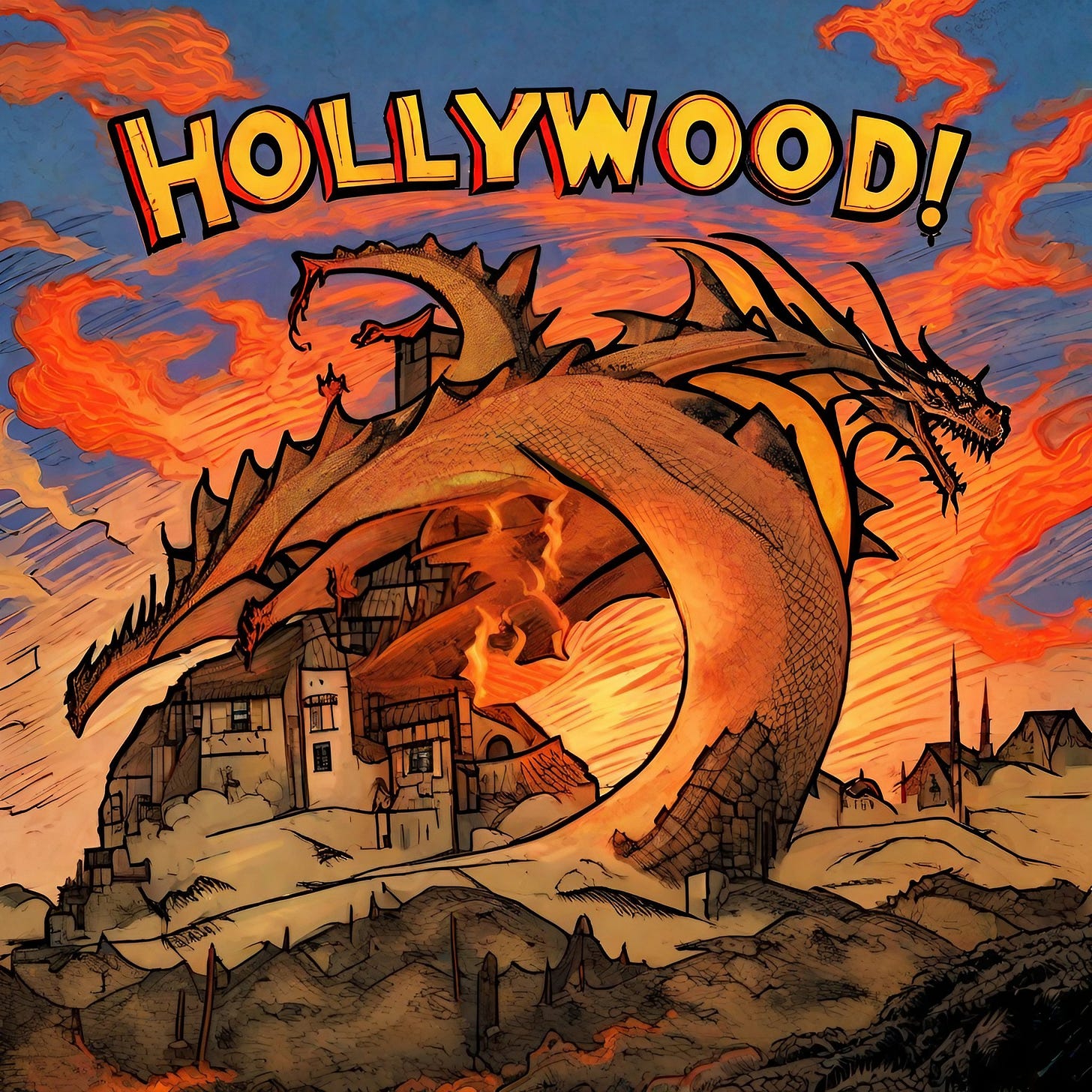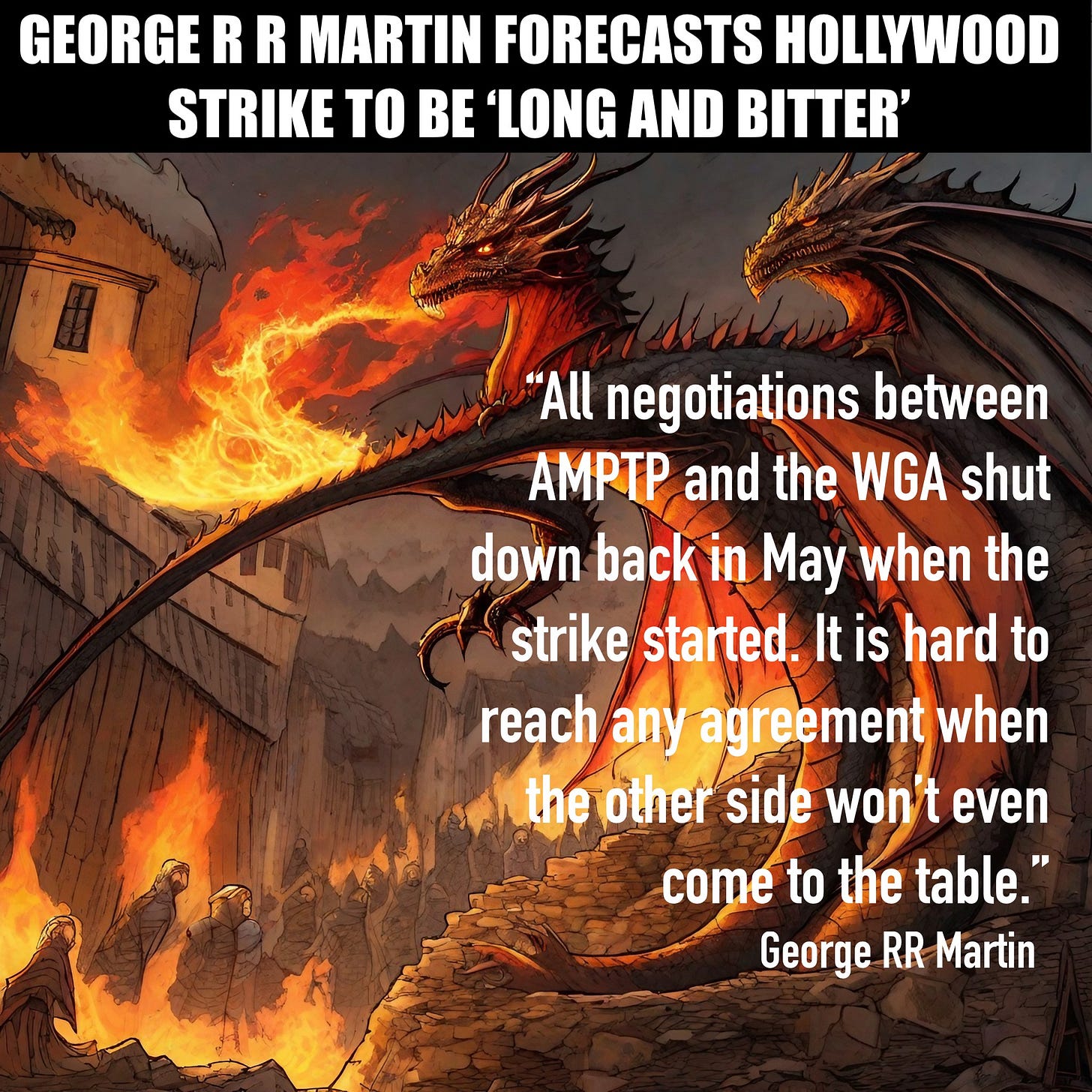Game of Thrones' George RR Martin on the Hollywood Strike: Studios Not Even Talking To Us
The economic costs of the strike may be staggering and Hollywood may never fully recover.
With the strikes in Hollywood now into their (combined) third month, George RR Martin, the writer behind HBO’s Game of Thrones series, gave his fans a rather ominous update over the weekend, stating that he has a “bad feeling that this strike will be long and bitter.”
Writing on his blog Saturday, Martin stated that Hollywood studios were not talking to negotiators for the Writers Guild of America (WGA) and had not budged an inch before actors represented by SAG-AFTRA went out on strike nearly two weeks ago .
“The SAG contract ended on June 30, but the actors gave AMPTP every chance to reach an equitable agreement by extending negotiations to July 12. That proved to be a futile gesture. The studios did not move an inch from their previous positions, and still refuse to address some of the most important issues on the table, including AI and payments and residuals from streaming. They gave the actors no choice but to walk."
"As for the writers… well, the studios are not even TALKING to us. All negotiations between AMPTP and the WGA shut down back in May when the strike started. It is hard to reach any agreement when the other side won’t even come to the table."
"I joined the WGA in 1986 and have been through several strikes with them. We made gains in all of them, but some issues are more important than others… and this year’s strike is the most important of my lifetime. An unnamed producer was quoted last week saying the AMPTP strategy was to stand fast until the writers started losing their homes and apartments, which gives you a hint of what we’re facing."
"But we ARE facing it. I have never seen such unity in the Guilds; the strike authorization votes for both SAG and WGA were as close to unanimous as we are ever likely to see."
"No one can be certain where we go from here, but I have a bad feeling that this strike will be long and bitter. It may get as bad as the infamous 1985 strike, though I hope not."
Economic costs may be staggering
As Martin indicated that the studios are not speaking with union negotiators, the economic costs are mounting.
Forbes has estimated that the costs of the strike could be as high as $3 billion to the Southern California economy.
“The economic fallout will be massive, with nearly 160,000 actors and approximately 11,500 screenwriters striking simultaneously,” wrote Forbes’ Dana Feldman earlier this month. “To put this into perspective, the 100-day strike 16 years ago, which solely involved the writers, surpassed $2.1 billion.”
However, following the writers’ strike in 2007, the Los Angeles Times reported that the cost the local economy was estimated to be more than $3 billion.
“Of that total, an estimated $772 million came from lost wages for writers and production workers,” the Times stated, “$981 million from various businesses that service the industry, including caterers and equipment rental houses, and $1.3 billion from the ripple effect of consumers not spending as much at retail shops, restaurants and car dealers.”
Given that the current Hollywood strike is more than twice the size and impacts a great many more people, if writer Martin is correct and the strike is “long and bitter,” Hollywood may never fully recover.





